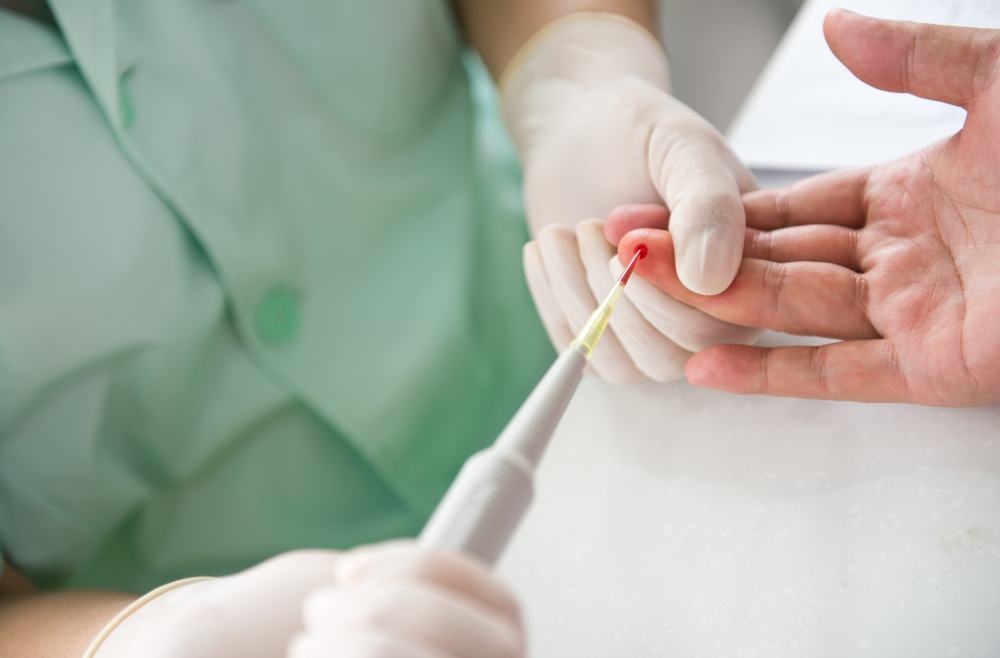Contents:
- Medical Video: Implementing a National Health Monitoring Evaluation & Case...
- What is a VCT test?
- Who needs a VCT test?
- Why does the VCT test have to be done in time within 90 days?
- What is the VCT test procedure like?
- 1. Counseling
- 2. HIV testing
- 3. Counseling after the test
- How effective are VCT tests for detecting HIV?
Medical Video: Implementing a National Health Monitoring Evaluation & Case...
Based on a press release report from the Director General of Disease Prevention and Control of the Indonesian Ministry of Health, there are as many as 10,000 people with HIV in the period from January to March 2017. The highest HIV cases were reported in the age group 25-49 years (69.6%) followed by the age group 20-24 years at 17.6 percent. HIV can be life threatening if it is detected late and does not get the right treatment. One type of HIV test available is a periodic 90-day VCT test.
What is a VCT test?
VCT stands for voluntary counseling and testing, that is a series of tests to find out whether you are positive or negative for HIV. VCT tests are confidential and voluntary, meaning the decision to take the test is entirely your own choice and you have the right to absolute privacy.
HIV infection at the beginning of its development does not cause clear symptoms so a person often does not realize he has been infected with HIV. For this reason, this service aims to detect HIV as early as possible and help prevent, treat and treat HIV before it's too late.
The main advantage of this service is that it saves money because you will be faster in detecting HIV. Unlike when you are late in diagnosing HIV and it turns out to be positive, the cost of treatment and hospitalization will be much more expensive and swollen.
Who needs a VCT test?
Every person who is sexually active (ever and / or frequently having sex) needs to undergo a VCT test if he has had risky sex, such as unprotected sex. Couples who are planning a marriage and pregnancy, and pregnant women also need to undergo this test if they are at high risk of HIV.
Why does the VCT test have to be done in time within 90 days?
You are advised to take the first VCT test at least after 3 months of risky sexual activity to determine whether you have contracted HIV. The second test is carried out after 3 months of the first test if the results show a nonreactive (negative) result, the latter being done three months after the second test.
Remember: getting negative results from the first test does not mean you are free of HIV. The body will generally begin to form antibodies around three weeks to 3 months after first contracting the HIV virus. This period is called the window period, which can last up to 42 days. However, how fast the body forms antibodies can differ from one person to another. There are those that take longer or even faster than three months.
Therefore, you will be recommended to undergo a follow-up test every 3 months to confirm the diagnosis. VCT can be done at health centers, hospitals and clinics providing VCT services.
What is the VCT test procedure like?
VCT is a three-stage process that involves pre-test counseling, HIV testing, and counseling after the test. This service is absolutely confidential because you will sign a written consent sheet before starting this HIV test. After the patient signs it voluntarily, a new VCT can be done immediately.
Following are the steps:
1. Counseling
Before undergoing the test, you will undergo counseling. This counseling aims to prepare you for an HIV test later and help you anticipate the results - whether positive or negative.
This counseling will be guided by a trained counselor who will first ask about the reasons for you taking this VCT test series. Next the counselor will explain to you about what HIV is, how it is transmitted, how much you risk, to explain about the examination, treatment, and prevention. He will also correct misunderstandings that you might have about HIV, and explain the importance and benefits of knowing your HIV status.
In addition, he will discuss the various options available to you and give you the opportunity to ask questions that you might have about HIV or HIV testing. You will be encouraged to talk freely about your fears and worries. Relax, everything you say is confidential and will not be leaked out of the counseling room.
The benefit of counseling before the test is that you can plan treatment and treatment more quickly if you are diagnosed with HIV. In addition, patients will better understand how to reduce the risk of transmission from mother to child (if the patient is pregnant) and prevent sexually transmitted infections (STIs).
However, it should be noted that people who do not want counseling before an HIV test will not be forced to live it. This is because each stage of VCT holds a voluntary principle and requires approval from the patient itself.
2. HIV testing
There are three types of common HIV antibody tests: Elisa test, Western Blot test, and Rapid test. Again, your doctor will ask for your consent before undergoing any tests. All of these tests are very reliable and accurate.
Elisa and Western blot tests will require you to take blood. Your blood sample will be sent to the laboratory for testing and the results will be received a week later.
Rapid test requires health workers to take a drop of blood by stabbing your finger. This drop of blood will be placed on an object glass for later dropping special chemicals. Your results will be available in 15 minutes. If the results are positive, the same test will be done again to really confirm the diagnosis.
The current HIV antibody test can only detect antibodies if the body has produced sufficient amounts. With new technology, you can get a test immediately before 3 months. However, there are still periods where antibodies cannot be detected in the blood so you might receive a negative HIV test result, even though you still have a virus in your body.
If you have risky sex in the past six weeks, you should take a second HIV test within six weeks to confirm the results of the first negative test.
Note: VCR tests do not include AIDS tests.
3. Counseling after the test
After taking the test and getting the results, the counselor will explain what the test means simply and clearly in the counseling session after the test. After that, it will give you time to understand the explanation and ask further questions.
If the results are negative, the counselor still encourages patients to reduce their risk of contracting HIV / AIDS. For example by having sexual relations safely and using condoms. He will also help you understand the possibility of needing to be retested, given the window period.
A positive test result means you have been infected with HIV. The counselor will help you through the turmoil of negative emotions such as shock, fear, and anger. You will have the opportunity to talk about whether you will tell your family and your spouse or not.
The counselor will invite you to discuss good next steps to improve your health, such as HIV care and treatment. He will also discuss changes in a healthy lifestyle with you. This is so that you can increase endurance and improve your overall quality of life. The counselor can also refer you to an advanced health facility to monitor your condition further.
In addition, HIV positive people will also be guided to reduce risk behaviors to prevent transmission of HIV or other sexually transmitted infections (STIs).
How effective are VCT tests for detecting HIV?
For the HIV test itself, both the Elisa test, the Western Blot test and Rapid test - all these tests are very reliable and accurate. However, the effectiveness of the overall VCT test for detecting HIV varies, judging from the completeness of the procedures being undertaken.
Its effectiveness is also seen from how capable the counselor believes in the patient, assessing the risk of HIV infection during before and after counseling, to how he reports the test results to patients accurately and clearly.
VCT tests can be used as a primary prevention that effectively reduces the risk of transmission of HIV and other STIs. HIV cannot be cured, but can be managed with antiretroviral treatment (ART) which aims to suppress the development of viruses in the body,including reducing the risk of transmission from mother to baby.












